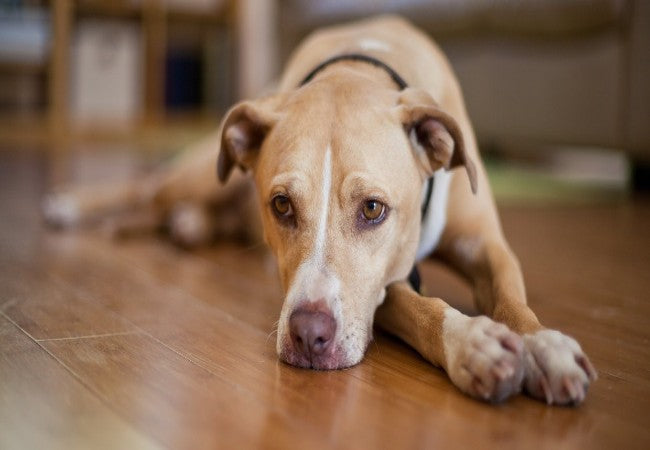Veterinary Guide to Dog Anxiety (2025) 🐶💙

In this article
Veterinary Guide to Dog Anxiety (2025) 🐶💙
By Dr. Duncan Houston BVSc
Dog anxiety involves excessive fear, worry, or stress in dogs, affecting behavior, health, and quality of life. It may stem from genetics, early socialization, traumatic events, or major life changes.
⚠️ Recognizing Signs
- Physical: panting, trembling, yawning, lip‑licking, dilated pupils, tucked tail, whale‑eye.
- Behavioral: pacing, hiding, whining, barking, destructive behavior, repetitive actions, escape attempts, house soiling.
- Emotional: loss of interest, regression, appetite loss or gain, withdrawal.
📍 Common Triggers
- Separation from owners.
- Loud noises: thunderstorms, fireworks, sirens.
- Travel, vets, grooming, social unfamiliarity.
- Environmental changes: moving, new family, loss of a companion.
🔬 Diagnosis & Veterinary Support
- Detailed history and physical to rule out medical issues.
- Referral to a board‑certified behaviorist if needed.
- May include behavior scoring, video observation, and veterinary labs.
💡 Behavior & Environment Strategies
- Identify and remove triggers where possible.
- Desensitization + counterconditioning: gradual exposure paired with positive rewards.
- Crate or safe den: comfort zone with low stimulation and optional white noise.
- Exercise & mental enrichment: daily activity, puzzle toys, obedience to improve resilience.
- Pheromone therapy: calming diffusers/collars (DAP) may reduce noise/stress anxiety.
- Routine and predictability: Reduce stress with consistent schedules.
💊 Medical Support
- Anti‑anxiety meds: SSRIs, tricyclics (e.g., clomipramine/Clomicalm), benzodiazepines, and others prescribed under vet guidance.
- Supplements: melatonin, chamomile, L‑tryptophan, B‑vitamins—commercial calming chews may help.
- Noise phobia protocols: medications timed before exposure to fireworks or storms, combined with behavioral techniques.
📈 Prognosis & Follow‑Up
- With early, multifaceted intervention, many dogs improve significantly.
- Complex or long-standing anxiety needs ongoing behavior plans + medication.
- Regular vet check‑ins to adjust strategies and monitor progress.
✅ Dr Houston’s Clinical Tips
- ✍️ Track anxiety signs and contexts to identify patterns.
- 🗓️ Start desensitization early, before reactions escalate.
- 🎁 Reinforce calm behavior immediately with treats/praise.
- 🏡 Create a safe, quiet ‘den’—think crate with blanket and soothing sounds.
- 🤝 Combine meds, enrichment, behavior training, and consistent care.
If your dog shows signs of anxiety—whether subtle (lip licking, yawning, pacing) or severe (destruction, tremors, excessive vocalization)—contact your vet. Together, we can build a personalized care plan to help your dog regain confidence, calm, and joy. 🐾❤️






